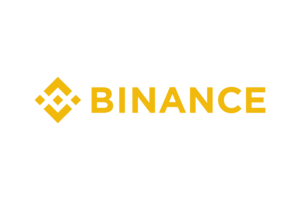The world’s biggest crypto exchange Binance and its CEO and founder Changpeng Zhao were sued by the US Commodity Futures Trading Commission (CFTC) on Monday for operating what the regulator alleged were an “illegal” exchange and a “sham” compliance program.
The CFTC sued Binance, Mr. Zhao and its former top compliance executive with “willful evasion” of US law, “while engaging in a calculated strategy of regulatory arbitrage to their commercial benefit.”
Mr. Zhao, a billionaire who was born in China and moved to Canada at the age of 12, called CFTC’s complaint as “unexpected and disappointing.”
“Upon an initial review, the complaint appears to contain an incomplete recitation of facts, and we do not agree with the characterization of many of the issues alleged in the complaint,” Mr. Zhao said in a statement.
The lawsuit comes amid a broader and increasingly high-profile crackdown on crypto companies. For years, US prosecutors and civil investigators have targeted crypto firms for illegal offerings and failures to comply with rules designed to prevent illicit activity. But the pace of such government activity has surged recently.
The CFTC said in its complaint on Monday that from at least July 2019 to the present, Binance “offered and executed commodity derivatives transactions on behalf of US persons” in violation of US laws.
Binance‘s compliance program has been “ineffective” and the firm, under the direction of Zhao, told employees and customers to circumvent compliance controls, the CFTC said, citing a number of practices first reported by Reuters in a series of investigations into the exchange last year.
The CFTC also accused Binance‘s former Chief Compliance Officer Samuel Lim of “aiding and abetting” Binance‘s violations. Lim did not immediately respond to calls and messages from Reuters.
A spokesperson for Binance, which dominates the global digital asset sector, said the firm will continue to “collaborate” with regulators.
Binance has made “significant investments” to ensure it does not have US users on its platform, the spokesperson said.
CFTC Chairman Rostin Behnam said in a statement that Binance executives knew for years “they were violating CFTC rules, working actively to both keep the money flowing and avoid compliance.”
The CFTC is responsible for oversight of commodities and derivatives markets, including for Bitcoin. Firms such as brokers that facilitate US customers’ trading of such products are required to register with the agency.
Reuters reported in December that the US Justice Department had been investigating Binance since 2018 for possible money-laundering and sanctions violations. Binance has processed at least $10 billion in payments for criminals and companies seeking to evade US sanctions, Reuters has found.
Binance‘s cryptocurrency BNB, the world’s fourth largest by market size, dropped around 4% on the news.
In a tweet on Monday afternoon, Mr. Zhao wrote “4” – a reference to a previous post listing his “Do’s and Don’ts” for 2023. The fourth item on the list was “Ignore FUD, fake news, attacks,” using an acronym for “fear, uncertainty and doubt” often used in crypto in relation to news perceived as negative.
‘PIRATE SHIP’
Founded in Shanghai in 2017, Binance sits at the heart of the global crypto industry. Its core Binance.com exchange processed trades worth about $23 trillion last year, according to data provider CryptoCompare. Trading volumes hit $34 trillion in 2021, Zhao said last year.
With a holding company based in the Cayman Islands, Binance has never revealed the location of its core exchange. The CFTC charged the holding company and two other Binance units.
Binance did not require customers to submit information verifying their identity before trading and “failed to implement basic compliance procedures designed to prevent and detect terrorist financing and money laundering,” the CFTC said.
The CFTC’s complaint detailed Binance‘s efforts to retain US customers even after the company, in partnership with a purportedly independent American firm, launched a US exchange in 2019 to serve American customers in compliance with US regulations.
Reuters previously reported that this American firm, BAM Trading, was in fact controlled by Mr. Zhao and managed by Binance as a de-facto subsidiary. The CFTC said when Zhao hired BAM’s first CEO, he “described Binance as a pirate ship and explained that he wished for Binance.US to be a navy boat.”
VIP CUSTOMERS
Though Binance‘s global business publicly said it was restricting US customers from trading on its platform, the CFTC said Binance told its commercially valuable US-based “VIP customers” how to evade its compliance controls.
Mr. Zhao kept information reflecting Binance‘s US customer base secret from some senior managers, CFTC said. In October 2020, Zhao directed Binance personnel to replace the US value for some data fields in Binance‘s internal database with “UNKWN”, it said.
Binance traded on its own platform through some 300 “house accounts,” directly or indirectly owned by Zhao, though the exchange had not disclosed this activity in its public terms of use or elsewhere, according to CFTC. The house accounts were exempt from Binance‘s “insider trading” policy, the CFTC said.
A top Binance executive told the Wall Street Journal in February that the company expected to pay penalties to resolve the US investigations.
The CFTC said it is seeking monetary penalties, disgorgement of ill-gotten gains and permanent trading and registration bans. – Reuters

